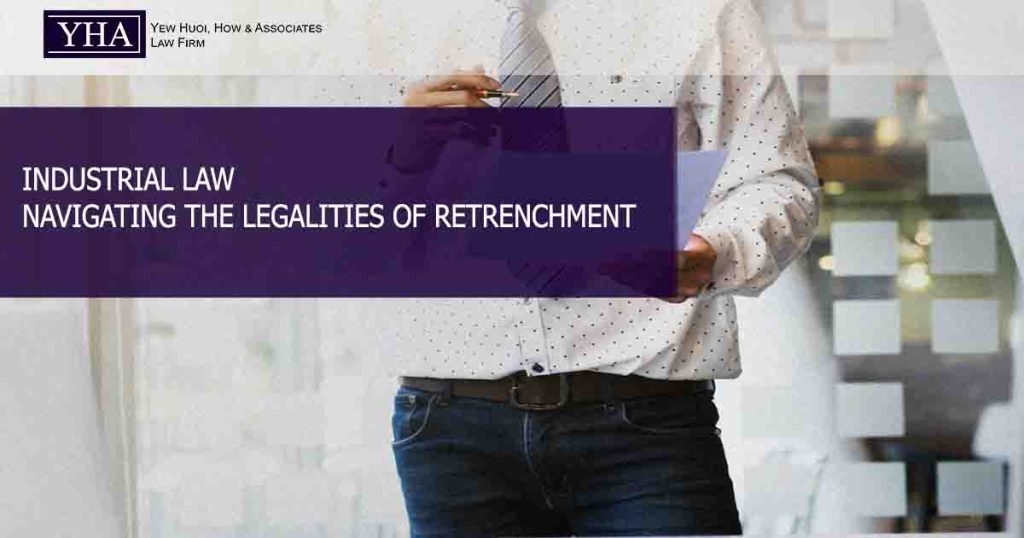The dismissal of X by Company ABC, citing economic downturns, presents a compelling case on the complexities of employment termination and retrenchment legality. X contested his redundancy, claiming his role in property management and services was unaffected by the property development market’s challenges. This case probes into the legitimacy of retrenchment under economic duress and the employer’s duty to act in good faith, as guided by Section 20(3) of the Industrial Relations Act 1967. The burden rests on Company ABC to prove the necessity and genuineness of X’s redundancy, with failure to do so possibly leading to a verdict of unjustified termination. This scenario underscores the critical importance of evidence and intention in retrenchment cases, as reflected in precedents like Akilan a/l Subramanian v. Prima Awam (M) Sdn Bhd.
1. Illustrative scenario:
X was relieved from his position as a senior supervisor by Company ABC, which cited a significant downturn due to a global economic slowdown leading to an oversupply of unsold properties in Malaysia as the reason for his redundancy. X challenged this rationale, asserting that his duties were centered around property management and services, unrelated to the issues of property oversupply that would typically concern property development entities.
The central question is whether a legitimate case for retrenchment has been established and if the termination of X by Company ABC was executed in good faith.
2. Legal Framework and Analysis:
- According to section 20(3) of the Industrial Relations Act 1967, the Industrial Court’s mandate is to ascertain the presence of a dismissal and, if affirmed, to evaluate whether it occurred with just cause or excuse.
- Reverting to the scenario presented, X’s dismissal is characterized as retrenchment. The court’s investigation focuses on the presence of conditions that necessitated the retrenchment initiative by the company and whether the company proceeded in good faith in executing X’s retrenchment.
- The burden of proof is on the company to substantiate the existence of genuine redundancy, which serves as the foundation for the employee’s termination.
- Therefore, Company ABC needs to adduce cogent reason and documentary evidence of the deteriorating financial situation before the Court which led them to identify X as being redundant in his position in the Company to prove that X’s dismissal from his employment was done without any just cause or excuse.
- If the Court finds that the fact has not been proved, then the inevitable conclusion would be that X’s retrenchment was without just cause or excuse.
Reference cases:
- Akilan a/l Subramanian v. Prima Awam (M) Sdn Bhd [2023] 1 ILJ 7
- Wong Chee Hong v. Cathay Organisation (M) Sdn Bhd [1988] 1 MLJ 92
- Arkitek Akiprima Sdn Bhd v. Liang Siew Fatt & Anor [2002] 1 ILR 150
- Bayer (M) Sdn Bhd v. Ng Hong Pau [1999] 4 CLJ 155

